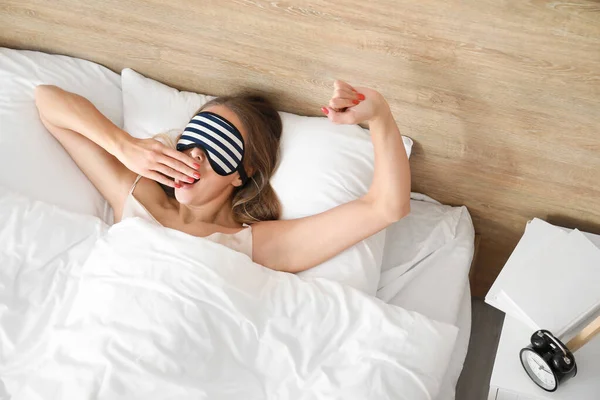Share this @internewscast.com
Are You Ensuring Sufficient Core Sleep? Understanding core sleep is essential for achieving truly rejuvenating rest. It refers to the vital part of your nightly sleep where crucial recovery and restoration tasks are carried out by your body and mind. Rather than just tallying up the hours you spend in bed, focusing on core sleep highlights the significance of the quality and depth of sleep stages that are most important for physical health, cognitive performance, and emotional stability.

What Is Core Sleep, and How Does It Differ from REM Sleep?
Core sleep mainly involves the initial stages of sleep—specifically the lighter sleep phases (NREM stages 1 and 2) and the onset of deep sleep (NREM stage 3). This period usually covers the first five hours of your sleep cycle and is essential for restoring energy, starting physical healing, and processing memories. During this time, your body reduces heart rate and temperature, muscles become more relaxed, and brain activity decreases, creating the optimal conditions for more profound restorative functions.
On the other hand, REM (Rapid Eye Movement) sleep occurs later in the cycle and is marked by heightened brain activity, intense dreaming, and temporary muscle paralysis. REM sleep is critical for managing emotions, solidifying memories, fostering creativity, and balancing hormones. While core sleep is more about physical recuperation and setting the groundwork for deep recovery, REM sleep focuses on mental and emotional renewal.
| Aspect | Core Sleep | REM Sleep |
|---|---|---|
| Definition | Early sleep stages (NREM 1, 2, 3) | Later stage with vivid dreaming |
| Functions | Physical recovery, memory processing, energy restoration | Emotional regulation, cognitive function, creativity |
| Timing | First 3.5-5 hours of sleep | Occurs later in sleep cycles |
| Brain Activity | Slower brain waves, muscle relaxation | High brain activity, muscle paralysis |
| Benefits | Physical repair, immune support | Mental health, memory, creativity |
Understanding these differences highlights why both core and REM sleep are necessary for a balanced, healthy sleep cycle
Understanding the Four Stages of Sleep
Sleep is divided into two main phases: Non-Rapid Eye Movement (NREM) and Rapid Eye Movement (REM), cycling through four stages multiple times per night. Each cycle lasts about 90 to 120 minutes, with 4 to 6 cycles typically occurring during a full night’s rest.
- NREM Stage 1 (N1): The lightest sleep stage, lasting a few minutes as you transition from wakefulness to sleep. Brain waves slow, muscles relax, and you can be easily awakened.
- NREM Stage 2 (N2): A deeper light sleep where heart rate and body temperature drop. This stage occupies the largest portion of total sleep and is considered part of core sleep.
- NREM Stage 3 (N3): Known as deep sleep or slow-wave sleep, this stage is the most restorative. It supports tissue repair, immune system strengthening, and growth hormone release. Awakening during this stage is difficult.
- REM Sleep: Occurs about 90 minutes after falling asleep, with brain activity resembling wakefulness. This stage is vital for dreaming, emotional processing, and memory consolidation.
Together, these stages form the architecture of sleep, with core sleep encompassing the first three stages and REM sleep completing the cycle.
How Core Sleep Fits into Your Sleep-Wake Cycle
Core sleep usually dominates the first half of the night, when deep sleep (N3) is most abundant. This timing aligns with your circadian rhythm, the internal clock regulating sleep and wakefulness. During this period, your body focuses on physical restoration—repairing muscles, strengthening the immune system, and clearing metabolic waste.
As the night progresses, REM sleep periods lengthen, supporting cognitive and emotional functions. If core sleep is insufficient or fragmented, the quality of subsequent REM sleep can also suffer, leading to impaired memory, mood disturbances, and reduced physical recovery.
For example, someone who sleeps eight hours but experiences frequent awakenings during the first half of the night may miss out on core sleep, waking up feeling unrefreshed despite adequate total sleep time.
The Benefits of Tracking Your Core Sleep
Monitoring core sleep can provide actionable insights into your sleep quality beyond just hours spent in bed. Many modern sleep trackers and wearable devices estimate core sleep by analyzing movement, heart rate, and sometimes brainwave activity.
Benefits of tracking core sleep include:
- Identifying sleep disruptions that reduce restorative sleep stages.
- Optimizing bedtime routines to maximize core sleep duration.
- Improving daytime energy and cognitive performance by ensuring adequate physical restoration.
- Detecting potential sleep disorders such as insomnia or sleep apnea that fragment core sleep.
- Personalizing lifestyle changes like exercise timing, diet, and stress management to enhance sleep quality.
For instance, a person noticing consistently low core sleep percentages on their tracker might adjust their sleep environment or consult a healthcare provider to address underlying issues.
How to Increase Core Sleep
Enhancing core sleep involves improving overall sleep hygiene and creating conditions conducive to uninterrupted, deep rest. Strategies include:
- Maintain a consistent sleep schedule: Going to bed and waking up at the same time daily reinforces your circadian rhythm.
- Create a sleep-friendly environment: Keep your bedroom cool, dark, and quiet to promote relaxation.
- Limit exposure to screens before bed: Blue light disrupts melatonin production, delaying sleep onset.
- Avoid stimulants and heavy meals close to bedtime: Caffeine, nicotine, and large meals can interfere with falling asleep.
- Incorporate relaxation techniques: Meditation, deep breathing, or gentle yoga can ease the transition into core sleep.
- Exercise regularly but not immediately before bed: Physical activity enhances sleep quality but should be timed earlier in the day.
- Manage stress: Chronic stress can fragment sleep; mindfulness and cognitive behavioral therapy can help.
- Limit alcohol consumption: While alcohol may induce sleepiness, it disrupts deep sleep and REM cycles.
By adopting these habits, you can increase the duration and quality of core sleep, leading to better physical recovery and mental clarity the next day.
In summary, core sleep is the vital foundation of your nightly rest, encompassing the early stages of sleep responsible for physical repair and memory processing. It differs from REM sleep, which focuses on emotional and cognitive restoration. Understanding the four stages of sleep and how core sleep fits into your sleep-wake cycle empowers you to prioritize this essential phase. Tracking core sleep provides valuable feedback to improve sleep quality, while lifestyle adjustments can help you achieve deeper, more restorative sleep tonight and beyond. Prioritizing core sleep is an investment in your overall health, productivity, and well-being.
Also Read | How High Blood Sugar Causes Diabetic Foot Ulcers and How to Prevent Them
We offer the most up-to-date information from top experts, new research, and health agencies, but our content is not meant to be a substitute for professional guidance. When it comes to the medication you’re taking or any other health questions you have, always consult your healthcare provider directly.

















